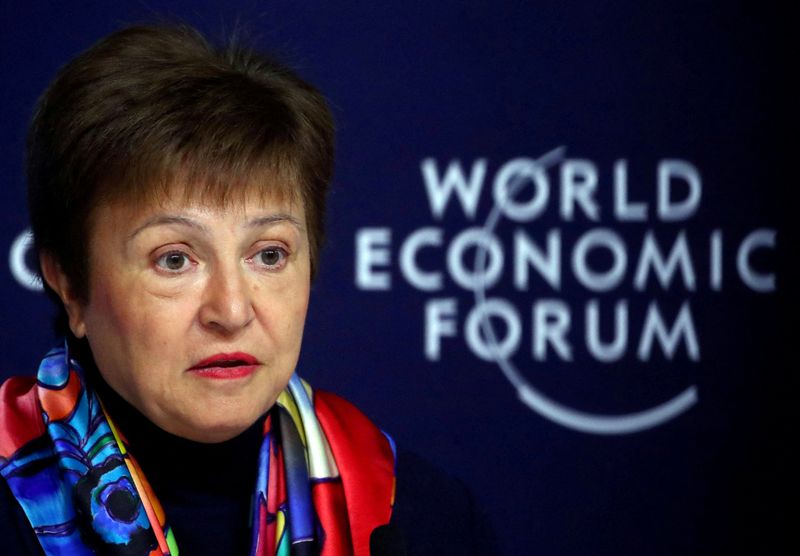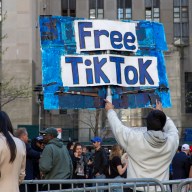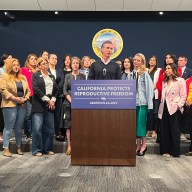WASHINGTON (Reuters) – The COVID-19 pandemic remains the biggest risk to the global economy, and is contributing to rising inflation in many countries, International Monetary Fund chief Kristalina Georgieva said on Wednesday.
Georgieva urged redoubled efforts to boost vaccinations and beef up defenses against the coronavirus, saying such moves — coupled with interest rate increases now being eyed or executed by central banks — would help ease supply chain disruptions and combat inflation.
“Pandemic policy is economic policy,” the IMF chief said. “The biggest risk for the performance of the world economy remains this year COVID and the disruption it causes.”
The IMF chief conceded that inflation had turned out to be a “more significant economic and social problem” than expected, and said economists had underestimated the impact of both delayed consumption and climate shocks on food prices.
Georgieva noted that vaccination rates in 86 countries had not reached a target of vaccinating at least 40% of their populations in 2021, and vaccination rates were at just 5% in low-income countries, compared with 70% in rich countries.
“Why is this a problem? Because what we do is we retain a breeding ground for more and more and more COVID variants,” she told an event hosted by the Washington Post.
The IMF last week cut its economic forecasts for the United States, China and the global economy, and said uncertainty about the pandemic, inflation, supply disruptions and U.S. monetary tightening posed further risks.
Georgieva said interruptions in global supply chains — initially expected to be brought under control as early as the first half of 2022 — were likely to continue because of COVID restrictions and other factors, including far higher demand for consumer goods such as computers and cars.
She warned that the dispute between Russia and Western countries over Ukraine was already driving energy prices higher, particularly in Europe, and complicated the already uncertain outlook for the global economy.
Georgieva’s deputy, Gita Gopinath, last week said an escalated conflict between Russia and Ukraine would likely further increase energy costs and commodities prices for many countries, keeping headline inflation rates elevated for longer.
She said the IMF underestimated the impact of climate change on food prices. “We have to recognize we are in a more shock-prone world, and we do have to expect these kind of shocks to be a factor in the future,” Georgieva said.
Economists also underestimated the impact of stimulus funding in fueling “more stronger consumer demand,” she said.
Georgieva said the U.S. Federal Reserve was doing a good job communicating its plans to tighten monetary policy, and she expected it to sustain its well-calibrated and well-communicated approach to combat inflation while keeping the recovery going.
“If we reduce the risks of more variants and more lockdowns, we are helping supplies to come on time and we are helping the economy to recover faster,” she said.
(Reporting by Andrea Shalal and David Lawder)



















